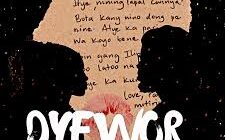By Theonastine Ashimwe (Marayika)
Our society declares a love of art and the well-to-do use their donations to art as badges of honor, but what it has set is a system where artist work out of ‘love’ for what they do, and those who ‘support’ the arts do so without establishing any kind of security or sustainability for people who make it.
As COVID-19 takes hold across the region over these days, the ripple effects have begun to be felt across East Africa’s creative sector.
For the past 72 hours, more than 100 articles about how to survive COVID-19 as a freelancer have been published, and that is an indicator of how bad the situation truly is. And all answers being provided are not practical for freelancers who were already struggling to meet their ends in a developing sector—in a developing country.
So, what does the COVID-19 crisis mean for freelance artists on the ground—for the East African artists? The EA Scene talked to a range of freelancer artists across the region to find out how they are coping with the situations.
The impacts thus far
“…many of us don’t have income protection insurance, so the future feels deadly uncertain,” Dios, a tattoo artist, said.
Many freelancers in East Africa, including artists, are worried. The financial stability for many, who have multiple streams of income generated through contracts, freelance, and hourly labor, is difficult to sustain with more and more closures happening to contain the spread of the virus.
“For us, personally, as self-employed workers with no sick leave or holiday. We are very anxious,” one artist from Inshuti Art Center mentioned (name withheld at artists’ request).
For people who have been freelancing for years and who are usually fully booked for festivals and ceremonies, their schedules stand suddenly empty. And their biggest worry is how they will afford to live in the upcoming months.
“I have never seen my calendar like this,” a DJ mentioned.
Is there anything that can be done?
We all support these measures to limit the spread of COVID-19 and believe that they are critical to public health.
For artists in different western countries like New Zealand, New York, Australia, and many others, there are different free resources, opportunities, and financial relief options available to them during the crisis.
The New York for Arts has compiled a comprehensive list of emergency grants for artists and writers. Robert Rauschenberg Foundation has partnered with organizations to launch a new grant program to assist professional artists in need of medical aid.
READ ALSO: Support East Africa’s Creative Sector During Coronavirus
Some organizations, such as the non-profit CERF, have shifted their assistance program to focus on artists “whose creative practices and income are being adversely impacted by the coronavirus,” the fund says in a statement.
“The majority of people who make up the East African scene are struggling artists—many of whom are freelance and devastated by the loss of these opportunities over the coming months.”
With most activities being canceled to reduce the spread of COVID-19, artists in East Africa who make income fully through gigs and freelance work are losing critical opportunities to support themselves and their families.
From museums and galleries to theatres and concert venues, it is an unavoidable fact that some of the most moving experiences of art often involves being in crowded spaces. COVID-19 labeled a pandemic by the WHO has thus posed a special challenge to art institutions in a creative industry that is still developing, and its effort to contain the spread is impressive.
However, in this time of lock down and physical distancing, the rich are stocking up foods thus prices doubling each and every day. Many struggling freelancer artists in East Africa have no choice but to go to work in risky environments so as to sustain themselves, thus not slowing the virus down by giving it many opportunities to jump from person to person.
Options for developing programs can be implemented for an online platform allowing us to continue paying honorariums to artists, writers, and activists—many of whom are freelance and devastated by the loss of these opportunities.
In the meantime, if you have a disposal income: Buy their paintings, buy and stream their music/poems, pay for their movies, pay for their photograph portraits, and buy their art pieces… There are a lot of things you can do.
It is okay. You do not have to attend their shows, festivals, or to visit their studios, but throw them a bone at least, especially if you have enjoyed their work before! We are all hurting. And sadly, when this COVID-19 ends, we will all go back to rooting for capitalism.










